Blackwell – The Arts & Crafts House
Blackwell, The Arts & Crafts House, is one of England’s most significant examples of early 20th-century architecture. Designed by Mackay Hugh Baillie Scott between 1897 and 1900, it reflects the ideals of the Arts and Crafts movement, emphasizing craftsmanship, simplicity, and functionality. Recognized for its importance, Blackwell was awarded Grade I listed status in 1998. It is situated near Bowness-on-Windermere, with views overlooking Lake Windermere.
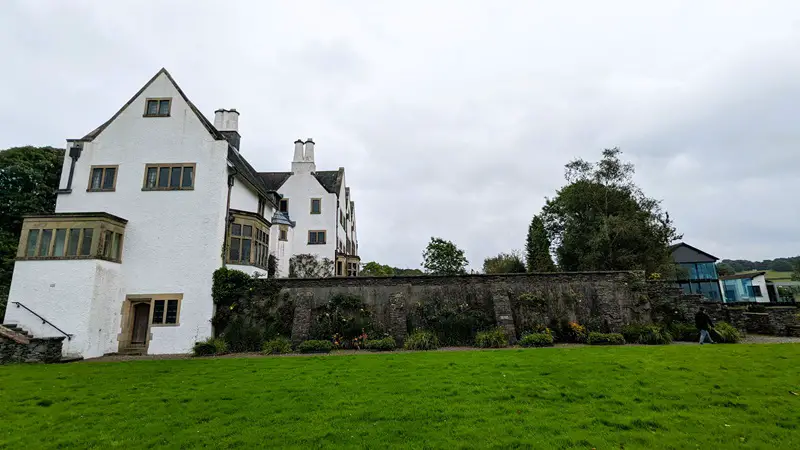
Baillie Scott’s Design Philosophy
Having assimilated the philosophies of John Ruskin and William Morris, Baillie Scott rejected the rigid layouts of Victorian homes in favor of open, adaptable spaces that made better use of light and function. Blackwell’s design incorporates locally sourced materials and skilled craftsmanship, seen in features such as oak paneling, stained glass, plasterwork, and metal detailing.
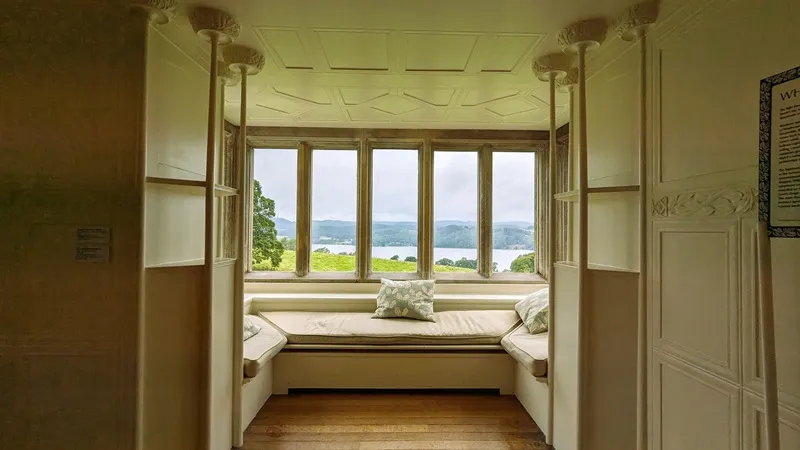
The house’s layout is both practical and carefully considered, creating a balance between communal and private spaces. Baillie Scott’s integrated approach ensured every detail, from architectural features to textiles, contributed to the overall design. The central hall, with its wooden beams and open fireplace, is a focal point that exemplifies this approach.
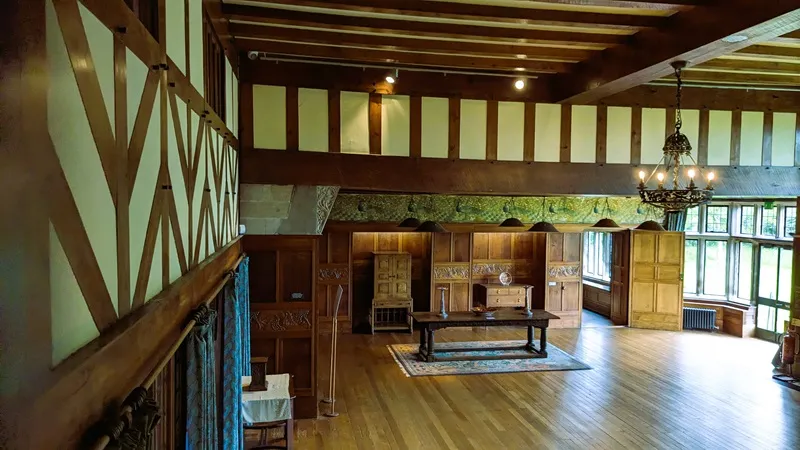
Historical Uses of Blackwell
During World War II, Blackwell was repurposed as a school when Huyton College relocated its junior girls to the house in 1941. This use continued until 1976, marking an important phase in the building’s history. The adaptation of Blackwell during the war underscores its flexibility as a structure and its role in the local community during a period of national upheaval.
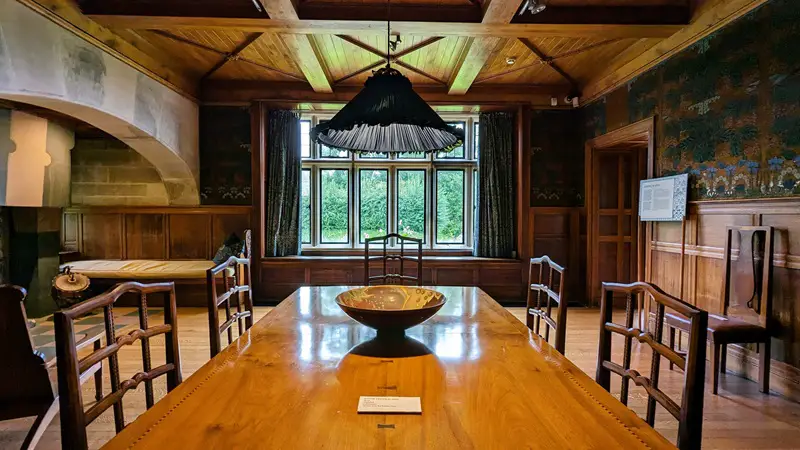
Restoration and Public Access
After years of varied use, Blackwell was restored between 2000 and 2001 under the guidance of the Lakeland Arts Trust. The aim was to preserve its historical features while making it accessible to the public as a gallery and cultural space. Artworks and decorative pieces from the Abbot Hall Art Gallery in Kendal were introduced, adding a contemporary cultural layer to the house.
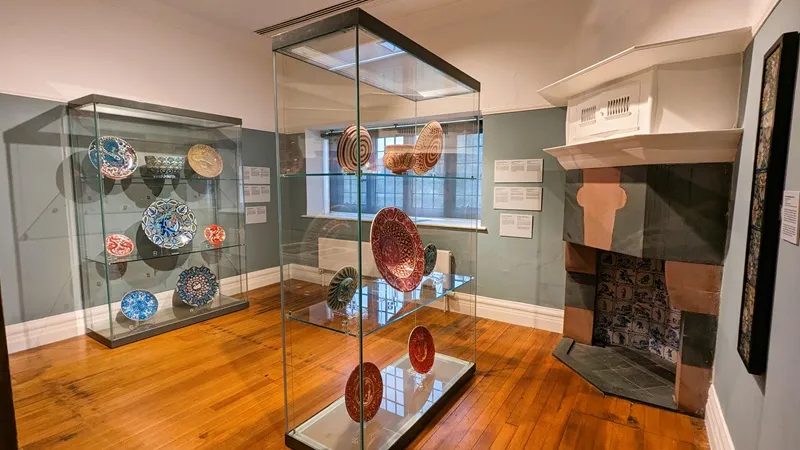
The restoration preserved the building’s integrity and focused on ensuring it remained true to its original purpose—a space designed for enjoyment and functionality. Today, visitors can explore its interiors, which provide insight into the architectural innovations of the Arts and Crafts movement.
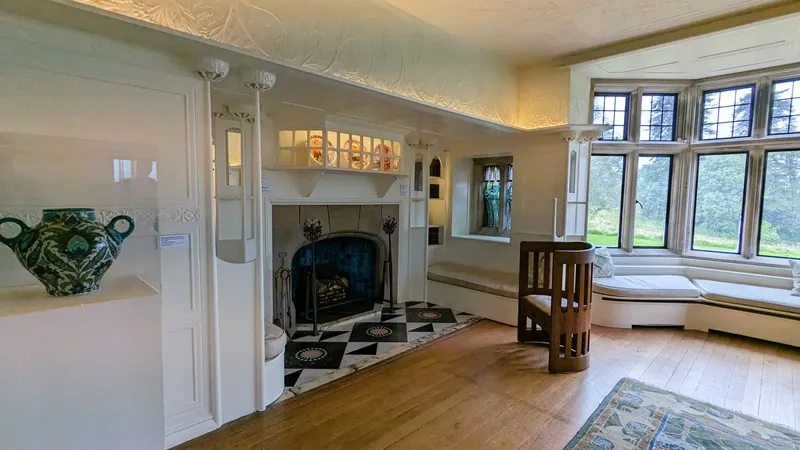
The Gardens
The gardens, originally designed in 1902 by Thomas Mawson, once reflected the house’s harmony with its natural surroundings. While much of the original landscaping has been lost, plans have been developed to reimagine the space in a way that respects Mawson’s vision and enhances the house’s connection to the Lake District’s landscape.
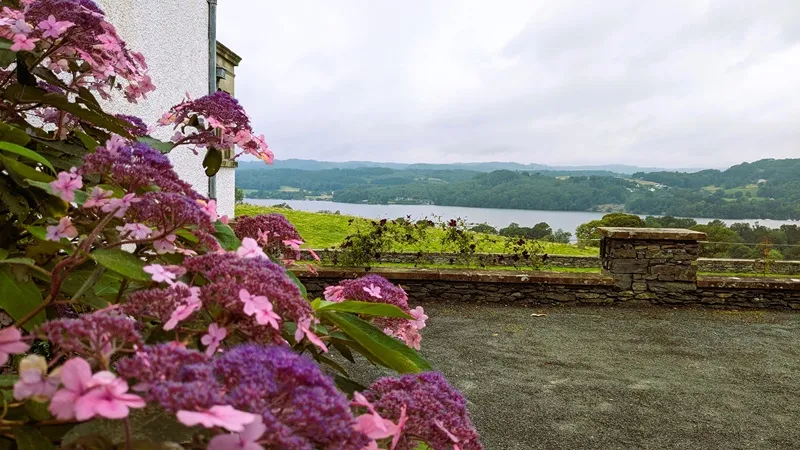
Plan your visit to Blackwell – the Arts & Crafts House
2025 Opening Times
November – March
House 10:00 – 16:00
Tea Room – 10:00 – 16:00
April – October
House 10:00 – 17:00
Tea Room – 10:00 – 17:00
2025 Admission
All tickets below are ‘annual passes’ and valid for 12 months
- Adult £12
- Student £9
- Child (15 and under) £6
- Child (4 and under) Free
- Lakeland Arts Members Free
- Family (1 adult + up to 3 children) £20
- Family (2 adult + up to 3 children) £30
- Art Fund National Art Pass Free
Blackwell, Newby Bridge Rd, Bowness-on-Windermere, LA23 3JT. Tel 015394 46139.(Updated 10/02/2025)
Menu:
Related Links: www.blackwell.org.uk
Grid Ref : SD 401945
Planning a visit to Blackwell, the Arts & Crafts House? See location marker below and enter your dates below to see available accommodation nearby on a handy map
Archive images
[nggallery id=8]
Photographs by Julian Thurgood, Jan Fialkowski and The Lakeland Arts Trust.
